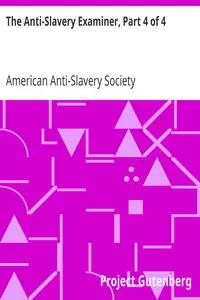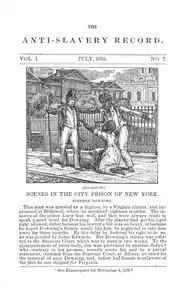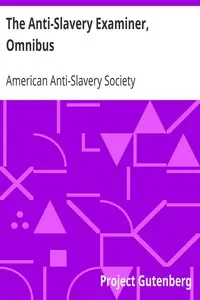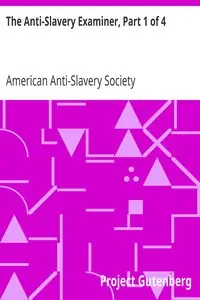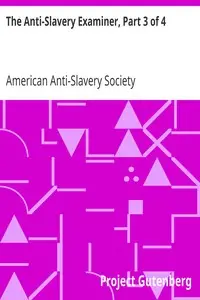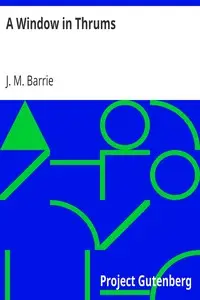"The Anti-Slavery Examiner, Part 2 of 4" by the American Anti-Slavery Society is a historical account written in the mid-19th century. This work serves as an examination of the institution of slavery, discussing its moral, legal, and political implications, while providing arguments against its justification, particularly in the context of American governance and legislation. The opening of the text focuses on the constitutional power of Congress over the District of Columbia, arguing for the capacity of legislative authority to abolish slavery within this jurisdiction. The text asserts that the essence of a civilized government is rooted in the law and moral principles, which restrict the power of legislation. It emphasizes that Congress holds "exclusive legislation, in all cases whatsoever," meaning it can legislate on moral grounds, including the abolition of slavery. The portion then elaborates on historical precedents and societal views that support the notion that legislatures can enact laws that emancipate slaves, arguing that the continuation of slavery contradicts the ideals of justice and humanity inherent in the founding principles of American governance. (This is an automatically generated summary.)
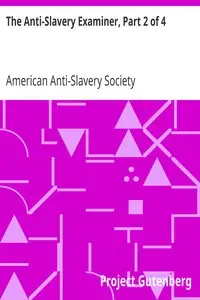
The Anti-Slavery Examiner, Part 2 of 4
By American Anti-Slavery Society
"The Anti-Slavery Examiner, Part 2 of 4" by the American Anti-Slavery Society is a historical account written in the mid-19th century. This work serve...
Genres
Released
2004-02-01
Formats
epub3 (images)
epub
epub (images)
mobi
mobi (images)
Free Download
Overview
About the Author
The American Anti-Slavery Society (AASS) was an abolitionist society in the United States. AASS formed in 1833 in response to the nullification crisis and the failures of existing anti-slavery organizations, such as the American Colonization Society. AASS formally dissolved in 1870.
Total Reviews
10.0k
Total reviews from Goodreads may change

